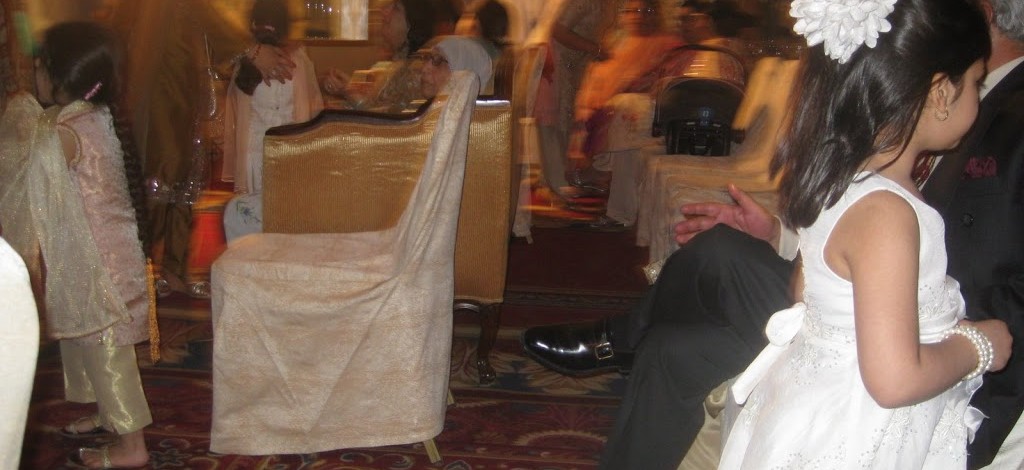Even before I got here, I was told it was important that I get invited to a Pakistani wedding. The social scene in this country revolves around private homes and the family structure, and if you’re a foreigner moving to town, you’ve got to break in somehow. Otherwise, your life is limited to the circle of embassy clubs, one of the two expat coffee shops in town, dinners in the sparsely populated restaurants at the Islamabad Marriott, and, of course, working 12 hour days. So I was happy to be invited to my first Pakistani wedding last week, even though it was, ironically, at the Marriott.
Pakistani weddings take something like four days to complete, and I don’t understand them at all. Actually, it’s about time for a disclaimer. Disclaimer: This entire paragraph and pretty much the remainder of this post is a mixture of hearsay, limited personal experience, and inference, and I can’t vouch for the accuracy of any of the information. (Go to wikipedia if you want to become even more seriously confused on the subject.)
But from when I’ve gathered: Each night has separate rituals, separate bridal outfits, and separate things that all the guests do. I attended Night #4, which is the night where, apparently, all the guests sit and watch the bridal couple and their families up on a dais and then disperse to eat a lot of food. The bride wears a really ornate (and very heavy) gown and is supposed to keep a downcast face as she enters and exits. Brides do not generally wear white as that is associated with funerals rather than marriages. Usually they are in red or yellow instead, and the clothing is beautiful. The bride’s hand are elaborately painted with henna for some of the nights, but not the one I attended. I heard that the bride’s hands were still henna’ed on Night #3, which is also where I heard all the crazy dancing happened. I am obviously sorry to have missed Night #3.
The elephant in the room for any American attending a Pakistani wedding is whether they are witnessing an arranged marriage or a “love marriage.” Arranged marriage is still quite common in this country, with the couple’s families getting together in advance to determine suitability and decide if their children make a good match. I have no idea how this works out in real life, if marriages here are generally better or worse, or more or less fulfilling than they are in other countries because of this tradition. I would imagine the answer is (as it is so often when discussing anything about marriage in any country)… It depends.
This particular bride certainly didn’t have a hard time putting on that downcast look required by tradition, and in fact that look was pretty much in evidence for the entire night. I concocted an elaborate private theory that her somber face was the result of the sudden discovery that her brand new arranged-marriage husband hated dogs and children, or had monstrously bad breath, or something else awful that you would not want to spend the rest of your life with. My alarmist expat fictions ground to a halt when I discovered that, a) it wasn’t really an arranged marriage and b) she pretty much wore that face all of the time. Oh, and c) she’d had a little dustup with her new mother-in-law before the reception. Very normal stuff. By not “really an arranged marriage” I mean they were introduced by their families but then had a lot of time to get to know each other and fall in love on their own. Can we call this an “arranged love” marriage?
I’d like to tell you more: how cute all the little girls were in their flower girl dresses or shalwar kameeze, about the live music and professional dancers, the adorable grandmother of the groom who had a hibiscus in her hair, the buffet that I laid into like a champion, and the seven different kinds of mousse on the dessert table, but you’ll just have to take my word for it that I had a good time. Leave the rest of it to your imagination, or until you experience your first Pakistani wedding yourself. (Remember that you always have a place to stay if you want to come visit!)


5 Comments